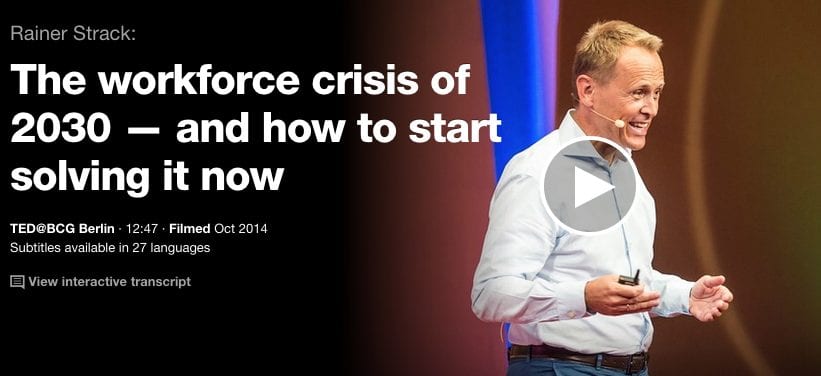It sounds counterintuitive, but by 2030, many of the world’s largest economies will have more jobs than adult citizens to do those jobs. In this data-filled talk, human resources expert Rainer Strack suggests that countries ought to look across borders for mobile and willing job seekers. But to do that, they need to start by changing the culture in their businesses.
Take-aways:
Yes, technology will replace a lot of jobs, but we will also see a lot of new jobs and new skills on the horizon, and that means technology will worsen our overall skill mismatch.
So people, high-skilled people, talents, will be the big thing in the next decade.
What will the new high-skilled workforce want? Out of a list of 26 topics, salary is only number eight. The top four topics are all around culture. Number four, having a great relationship with the boss; three, enjoying a great work-life balance; two, having a great relationship with colleagues; and the top priority worldwide is being appreciated for your work.
Every company, but also every country, needs a people strategy that consists of four parts:
- A plan for how to forecast supply and demand for different jobs and different skills. Workforce planning will become more important than financial planning.
- A plan for how to attract great people:generation Y, women, but also retirees.
- A plan for how to educate and upskill them.There’s a huge upskilling challenge ahead of us.
- How to retain the best people,or in other words, how to realize an appreciation and relationship culture.




